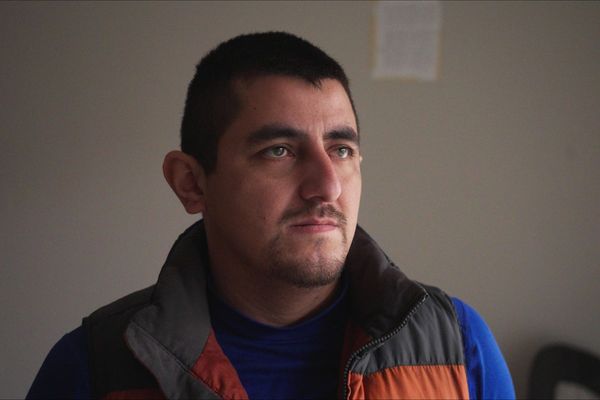
I am supposed to be in my sixth and final year of medical school at al-Azhar University in Gaza – I was supposed to be called Dr Manar in a couple of months’ time. Instead, my education in Gaza has been put on hold. Israel’s genocidal onslaught has ravaged our home and left me and thousands of others struggling to finish our studies. I endured five months of fleeing and displacement.
In Gaza, our mornings once began with the sound of school bells and the laughter of children chasing each other as they lined up for morning exercises. But now, the mornings are shattered by deafening bombs. Instead of lining up for school, young children stand in lines for drinking water, hoping to survive another day.
At the end of March this year, a report estimated that almost 90% of school buildings in Gaza had been damaged or destroyed. The situation today is probably even worse. Over the summer, Israel bombed several schools used as shelters. The aftermath of the bombing of two school buildings in the Sheikh Radwan neighbourhood in August was a scene of horror – children’s bodies lay lifeless, their innocence and potential reduced to mere “collateral damage”.
Later that month, Israel attacked al-Tabieen religious school and mosque, claiming at least 93 lives and leaving nothing but devastation in its wake. “Children were torn apart,” one local person told AFP. Body parts were strewn everywhere and collected in plastic bags. Imagine searching for your child, only to be handed a bag. Pieces of what was once a life, a family, a future. And just this week, the bombing of a UN-run school killed 18 people.
These attacks target more than buildings: they are assaults on the future of an entire generation. Schools, once sanctuaries of learning, have become shelters for the displaced, homeless and orphaned. Our places of education are no longer fulfilling their purpose, as they are bombed out of existence. The statistics are staggering. As of 2 April, more than 5,479 students and 261 teachers had been killed.
Despite this devastation, Gaza’s spirit remains unyielding. Our literacy rate is almost 98%, one of the highest in the world. We are determined to keep it that way. Through the rubble, you can still see mothers teaching their children the ABCs. Through the ashes of burning wood, you can still hear the recitation of the Qur’an. Education continues, not in classrooms, but in the hearts and minds of our people.
The destruction of schools disrupts far more than just the academic year; it tears apart the very sense of normalcy and stability that education offers. Even those of us who have escaped Gaza find ourselves adrift, struggling to find solutions. In Egypt, for example, schools routinely refuse to admit Gazan children without a valid residency permit – an extremely difficult document for Palestinians to obtain. Most of us fled with only a birth certificate or, if we were fortunate, a passport.
Online schooling, often touted as an alternative, is not a viable solution. Expecting a child to sit in front of a laptop and succeed in isolation, without social interaction or a structured environment, is unrealistic. Children need more than just academic lessons; they need the emotional and psychological support that a school environment provides – support that is being torn away from them.
There are countries and institutions that have already begun to help Gazans take the first step towards a better future. Initiatives like exchange programmes, elective courses and summer courses are crucial, not just for providing education, but for giving hope and building bridges of understanding. I have benefited from one of these schemes, run by the University of Oslo, which has allowed me to study as an exchange student for the autumn semester, focusing on obstetrics, gynaecology and paediatrics, enhancing my medical knowledge and connecting me to a global community of learners.
I write to ask for your solidarity – and action. Please, advocate for international scholarships that give students like me a chance to continue our education. Write to your political leaders and demand that they take a stand for the right to education, a right that every child, regardless of nationality or circumstance, deserves. By amplifying our voices, you can help bring attention to the plight of Gaza’s students and ensure that education remains a priority, even in times of crisis.
Education is not just about learning, but also about preserving our humanity. By supporting the education of Gaza’s children, you are giving them the hope and the chance to become the doctors, teachers, engineers and leaders who will rebuild our communities and heal our wounds.
Despite everything, my hope remains unshaken. I dream of a future where I can walk across the graduation stage and be called Dr Manar, where the children of Gaza wake up to the sound of school bells instead of bombs. One day, Gaza will not be known for its destruction, but for its resilience, its brilliance, and the power of its educated youth.
Manar Al Khodari is a medical student from Gaza’s Rimal neighbourhood
Do you have an opinion on the issues raised in this article? If you would like to submit a response of up to 300 words by email to be considered for publication in our letters section, please click here.







